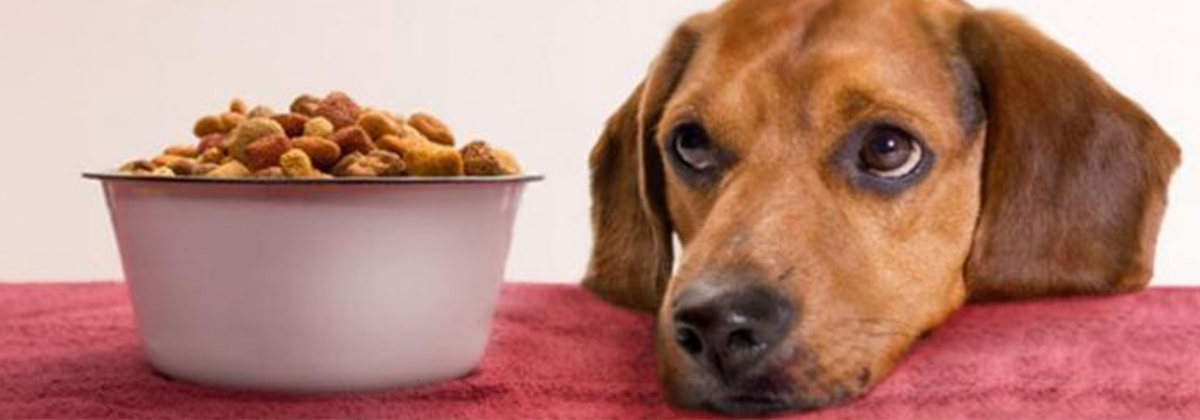22 Mar Loss of appetite in Dogs: Causes, Symptoms, & Treatment
Loss of appetite or anorexia in dogs can indicate various problems, minor stressors, or dangerous illnesses such as depression and cancer. If your dog doesn’t eat due to stomach upset or stress, he may start eating the next day again. But the loss of appetite and anorexia for more than two days can be a sign of illness and shouldn’t be ignored. Dogs usually eat more than two meals a day, and refusing to do so can be a bad sign. If you notice a change in your dog’s eating habits, take your dog to a veterinarian immediately. This sign in chow hounds should be followed up earlier than other breeds.
Symptoms of loss of appetite in dogs
- Eat less than usual
- Refusal to eat food
- Not eating treats
- Lack of interest in food
- Weight Loss
- Weakness and lethargy
- Vomit
types of loss of appetite in dogs
- False anorexia
Your dog likes to eat but can’t because of a physical problem.
- Real anorexia
Pets don’t like to eat.
Reasons for loss of appetite in dogs
Psychological causes of anorexia
- Depression
- Stress
- Improper food
- Change in environment
- Diet change
- Changes in the daily schedule
Physical causes of anorexia
- medicine
- Infection (bacterial, viral, parasitic)
- Cancer
- the pain
- Poisoning
- Dental problems
- Cardiovascular disease
- Gastrointestinal obstruction
- Endocrine Disorder
- Autoimmune disease
- Respiratory disease
- Nervous disease
Diagnosis of loss of appetite in dogs
To diagnose the disease, the causes must be identified. For example, if your dog has anorexia due to stressors, you should know that these stressors may include moving to a new home, having new guests at home, leaving a family member for a while, getting a new pet, loud noises ( Fireworks, bullets, lightning) or a change in diet.
If you notice a decrease in appetite in your dog, you can restore his appetite with a gentle diet such as boiled chicken breast and white rice. If you have recently changed your dog’s diet, use his previous diet, a little low-sodium chicken or vegetable broth, to stimulate the appetite. It’s best to examine your dog for 24 hours. See a vet immediately if your dog continues to have a poor appetite, no bowel movements, diarrhoea or vomiting. Loss of appetite, trying to eat, desire to eat, any change in diet or environment can be important for the veterinarian.
Physical examination also includes examining the mouth, teeth, throat, heartbeat for pain or possible lumps. Laboratory diagnosis may include a blood test to diagnose abnormal liver, kidney, and other organ functions, faecal tests to detect the presence of intestinal parasites, radiographs to visualize any abdominal or chest problems, and endoscopy to visualize the condition of the throat, stomach lining, and upper small intestine are appropriate.
Treatment of loss of appetite in dogs
- Heating food
- Add hot water to the dog food container
- Not too hot food (Stir the microwave food well so that the heat is evenly distributed.)
- Add canned food or low-sodium chicken or vegetable broth to the dog food dish.
- Maybe he prefers to eat with his fingers or a spoon rather than eating from a bowl.
- Hydration by intravenous or subcutaneous fluid therapy and electrolyte supply.
- Feeding syringes or feeding tubes for pets that have not eaten for 2 or 3 days.
- Use an appetite stimulant such as mirtazapine or cyproheptadine to increase appetite.
- Oral medications, dental procedures or surgery.
- Implement a diet plan after recovery. A proper diet is done for 2 or 3 days, with small portions repeated throughout the day. The diet is then gradually adjusted over the course of a week.
Recovery appetite loss in dogs
Follow your veterinarian’s instructions for nutrition and diet management carefully. The gastrointestinal tract often becomes sensitive after periods of not eating, and only a veterinarian’s dietary instructions can cure this problem. If appetite doesn’t improve within 1 or 2 days after treatment, tell your veterinarian immediately to monitor bowel movements and behaviour carefully.
Treating anorexia nervosa in your dog depends on your diagnosis and prompt treatment. A good diagnosis usually occurs with early detection. Your dog can regain his appetite in about a day or two.




No Comments